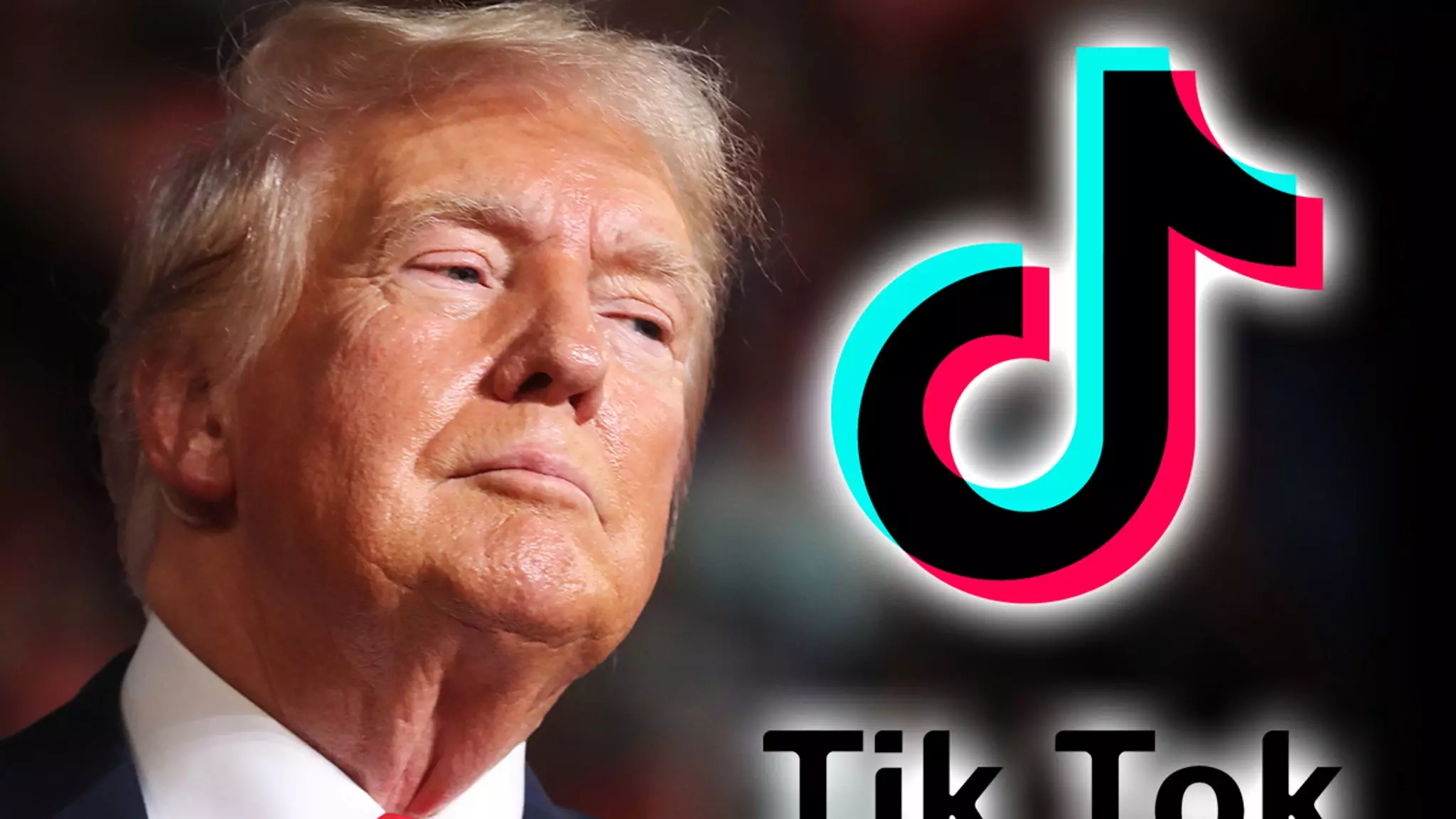As part of an evolving digital landscape fraught with geopolitical tension, former President Donald Trump is invoking the authority of the Supreme Court to intervene in a looming ban on TikTok set to take effect on January 19. This ban, which emerges from concerns regarding national security and data privacy linked to TikTok’s Chinese ownership, represents not only a legal crossroad but also a significant moment in American politics and social media interactions. The timing is pivotal, occurring just before Trump’s anticipated inauguration for a second term, hinting at the interplay between technology, governance, and the future of social media platforms.
Legal Maneuvering and Trump’s Arguments
Trump’s request comes through a brief filed by his attorney, John Sauer, who highlights an urgent appeal to the Supreme Court for a delay in the enforcement of this ban. The rationale presented by Trump is both strategic and politically charged; he posits that as a “consummate deal-maker,” he possesses the necessary acumen to negotiate a resolution that protects TikTok while also addressing public concerns about potential Chinese government influence. This framing suggests a narrative where Trump positions himself as a protector of digital freedoms, aiming to attract support from TikTok’s substantial user base, of which he is an active participant with nearly 15 million followers.
Trump’s insistence on a “political resolution” reveals his appetite for leveraging his political authority and trust among the electorate to navigate complex legal issues. This request underscores the broader implications of presidential influence on technology regulation and the degree to which political figures can shape policy related to emerging internet platforms.
The backdrop of this legal battle involves significant First Amendment complexities. TikTok has already signaled intentions to challenge the ban on grounds that it infringes upon free speech rights. Supporters of the platform view any ban as not just an attack on a particular app but as a potential precedent for greater censorship in digital communication. Meanwhile, the U.S. government’s stance centers on national security concerns, emphasizing that the Chinese government’s potential access to user data presents a palpable threat to American citizens.
This dichotomy illustrates the ongoing struggle within American society surrounding digital rights and governmental oversight. As technology continues to evolve, the tension between privacy rights and national security will remain a pressing issue, warranting careful scrutiny from legislative and judicial bodies alike.
The eventual decision by the Supreme Court will not only impact TikTok and its millions of users but will also reflect the court’s stance on issues of technological governance in a rapidly changing world. How the justices navigate this case could set significant precedents for future cases involving similar socio-political dilemmas. The balance between safeguarding national interests and preserving individual freedoms on social media platforms will be tested, and the outcomes of this case could resonate far beyond TikTok.
As Trump rallies for judicial intervention, the implications for social media, technology regulation, and First Amendment rights challenge the foundations of American democracy. The unfolding legal discourse around TikTok serves as a salient reminder of the intersections between technology, politics, and the law in the 21st century.

Leave a Reply